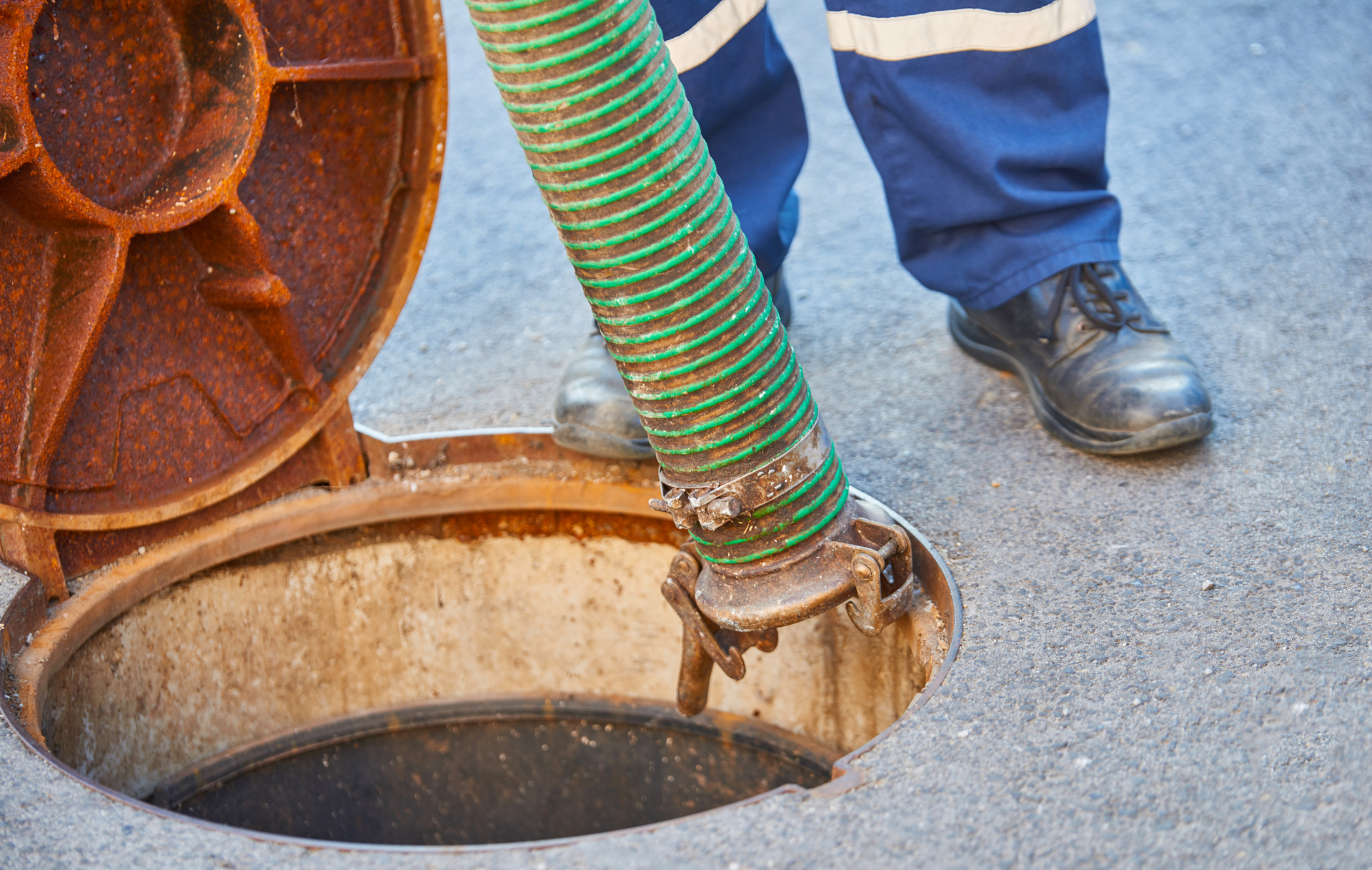Your Septic System's Lifeline: The Role of Regular Septic Tank Inspections in Oxford
November 23, 2023
Your Septic System's Lifeline: The Role of Regular Septic Tank Inspections in Oxford
Nestled in the heart of Mississippi, the charming town of Oxford boasts historic architecture, vibrant culture, and a deep sense of community. Amidst the beauty of this picturesque town, homeowners take pride in their properties, aiming to preserve not only the aesthetics but also the functionality of their homes. A crucial yet often overlooked aspect of home maintenance is the septic system. Responsible for the treatment and disposal of wastewater, septic systems play a pivotal role in maintaining a healthy and hygienic environment. One key practice to ensure the longevity and efficiency of your septic system is regular septic tank inspections.
In this comprehensive guide, we will explore the significance of scheduling routine septic tank inspections in Oxford, MS. We'll delve into the benefits of this proactive approach to septic system maintenance while addressing common questions and concerns.
Understanding the Septic System
Before delving into the importance of septic tank inspections, let's take a moment to understand the key components of a septic system. In Oxford, where many homes are not connected to municipal sewage systems, septic systems are the unsung heroes of wastewater management. These systems ensure that household wastewater is safely treated and disposed of, preventing environmental contamination and health hazards.
A typical septic system comprises the following essential elements:
Septic Tank: Wastewater from your home flows into the septic tank, where solids settle at the bottom, and scum floats to the top. The tank's primary function is to separate and partially treat the wastewater.
Drain Field: After leaving the septic tank, liquid effluent is distributed into a drain field, where it percolates through the soil and undergoes further treatment.
Pipes and Distribution Box: A network of pipes and a distribution box evenly distribute effluent in the drain field.
A properly functioning septic system is vital for safeguarding public health, preserving the environment, and maintaining property values. However, like any other part of your home, septic systems require regular care and maintenance to operate efficiently.
The Benefits of Regular Septic Tank Inspections
Scheduled septic tank inspections are the linchpin of effective septic system maintenance. Let's explore the numerous advantages of including inspections in your routine maintenance plan:
1. Early Problem Detection
Routine inspections allow trained professionals to identify potential issues before they escalate into costly and disruptive problems. Detecting minor concerns early can prevent major system failures.
2. Optimal Performance
Regular inspections ensure that your septic system is operating at peak efficiency. This not only prevents backups and malfunctions but also maximizes the system's lifespan.
3. Environmental Protection
Properly maintained septic systems reduce the risk of wastewater contaminating the local environment. This is especially critical in Oxford, where the preservation of the town's natural beauty is a shared responsibility.
4. Legal Compliance
Many areas, including Oxford, have regulations that require regular septic system inspections. Ensuring compliance helps homeowners avoid fines and legal complications.
5. Property Value Preservation
A well-maintained septic system is an asset to your property. It can positively impact your home's resale value and appeal to potential buyers.
Frequency of Septic Tank Inspections
The frequency of septic tank inspections depends on various factors, including household size, water usage, and the age of the system. In general, here are some guidelines to consider:
Annually: For households with more than four occupants.
Every 2-3 Years: For households with two to four occupants.
Every 3-5 Years: For households with one occupant.
However, these are general recommendations, and it's crucial to consult with a licensed septic service provider in Oxford to determine the ideal inspection schedule for your specific circumstances.
Selecting a Qualified Septic Service Provider
When scheduling septic tank inspections, it's essential to choose a qualified and reputable septic service provider in Oxford. Here are some tips to help you make an informed choice:
Check Credentials: Verify that the provider is licensed and certified to perform septic system inspections in Mississippi.
Request References: Seek recommendations from neighbors, friends, or online reviews to ensure the provider has a track record of delivering quality service.
Inquire About Experience: Ask about the provider's experience with septic systems similar to yours. Experienced technicians are more likely to identify and address issues effectively.
Clarify Inspection Procedures: Understand the scope of the inspection and the specific components that will be assessed. A thorough inspection should cover the septic tank, drain field, distribution box, and associated components.
Ask About Reporting: Inquire about the inspection report. A comprehensive report should include findings, recommendations, and any necessary repairs or maintenance.
Discuss Costs: Obtain a written estimate for the inspection, and ensure you understand any additional charges for necessary repairs

Navigating the regulations surrounding septic systems is crucial for homeowners and businesses to ensure compliance, protect public health, and safeguard the environment. In this guide, Oxford Septic Services provides valuable insights into septic system regulations, offering clarity and guidance for property owners. Chapter 1: Regulatory Overview Oxford Septic Services provides an overview of the regulatory landscape governing septic systems, including local, state, and federal regulations. Understanding the regulatory framework is essential for property owners to comply with legal requirements and avoid potential fines or penalties. Chapter 2: Permitting Requirements Property owners may be required to obtain permits for the installation, repair, or modification of septic systems. Oxford Septic Services explains the permitting process, including the application requirements, approval procedures, and associated fees, to help property owners navigate the process successfully. Chapter 3: Inspection and Maintenance Requirements Many jurisdictions have inspection and maintenance requirements for septic systems to ensure proper functioning and prevent environmental contamination. Oxford Septic Services outlines these requirements, including the frequency of inspections, maintenance tasks, and reporting obligations, to help property owners fulfill their regulatory obligations. Chapter 4: Environmental Considerations Septic systems can impact groundwater quality, surface water contamination, and sensitive ecosystems if not properly maintained. Oxford Septic Services discusses the environmental considerations associated with septic systems, emphasizing the importance of responsible waste management practices to protect the environment and public health. Chapter 5: Compliance Assistance Complying with septic system regulations can be complex, but Oxford Septic Services offers assistance to property owners. Whether it's helping with permit applications, conducting inspections, or providing maintenance services, Oxford Septic Services ensures that property owners have the support they need to meet regulatory requirements. Chapter 6: Future Trends and Developments Regulations governing septic systems are subject to change as new technologies emerge and environmental concerns evolve. Oxford Septic Services discusses future trends and developments in septic system regulations, helping property owners stay informed and adapt to regulatory changes proactively. Conclusion: Understanding septic system regulations is essential for property owners to maintain compliance, protect public health, and preserve the environment. With insights from Oxford Septic Services, property owners can navigate regulatory requirements confidently and ensure the proper functioning of their septic systems for years to come.

Septic system failures can be costly, inconvenient, and hazardous to both property and health. Fortunately, with proper maintenance and proactive measures, many septic system failures can be prevented. In this guide, Oxford Septic Services shares valuable tips to help homeowners and businesses avoid septic system failures and ensure the long-term functionality of their systems. Chapter 1: Regular Maintenance Inspections Routine maintenance inspections are essential for identifying potential issues early and preventing costly repairs. Oxford Septic Services recommends scheduling regular inspections to assess the condition of your septic system and address any problems before they escalate. Chapter 2: Timely Septic Tank Pumping Regular septic tank pumping is crucial for removing accumulated solids and preventing clogs and backups. Oxford Septic Services advises homeowners to adhere to a consistent pumping schedule based on factors such as household size and usage to maintain optimal tank capacity. Chapter 3: Proper Waste Disposal Practices Improper disposal of household waste can overload septic systems and lead to system failures. Oxford Septic Services recommends avoiding flushing non-biodegradable items, grease, and chemicals down drains and toilets to prevent clogs and damage to the system. Chapter 4: Protecting the Drain Field The drain field plays a critical role in wastewater treatment and dispersal. To prevent drain field failure, Oxford Septic Services advises property owners to avoid parking vehicles or installing structures over the drain field and to maintain proper landscaping to prevent root intrusion. Chapter 5: Prompt Repairs and Maintenance Addressing minor issues promptly can prevent them from escalating into major septic system failures. Oxford Septic Services recommends contacting a professional at the first sign of trouble, such as slow drains, foul odors, or sewage backups, to prevent further damage. Chapter 6: Environmental Awareness Understanding the environmental impact of septic system failures can motivate property owners to prioritize proper maintenance and care. Oxford Septic Services emphasizes the importance of responsible waste management and eco-friendly practices to protect local water sources and ecosystems. Conclusion: By following these tips from Oxford Septic Services, homeowners and businesses can take proactive steps to prevent septic system failures and maintain the functionality of their systems for years to come. With regular maintenance, proper waste disposal practices, and prompt repairs, property owners can avoid costly and disruptive septic system failures and enjoy peace of mind knowing their systems are in good working order.
